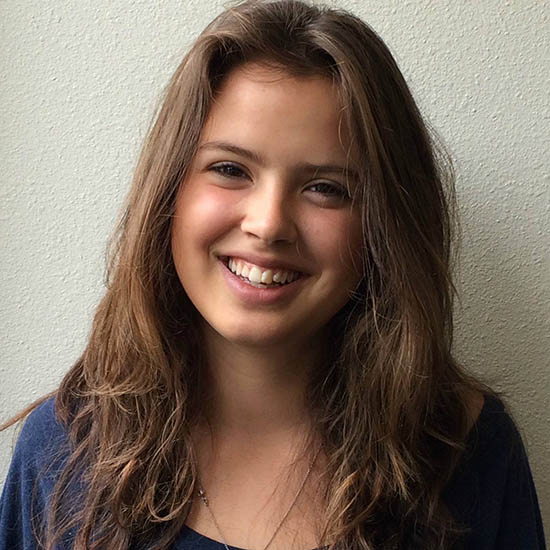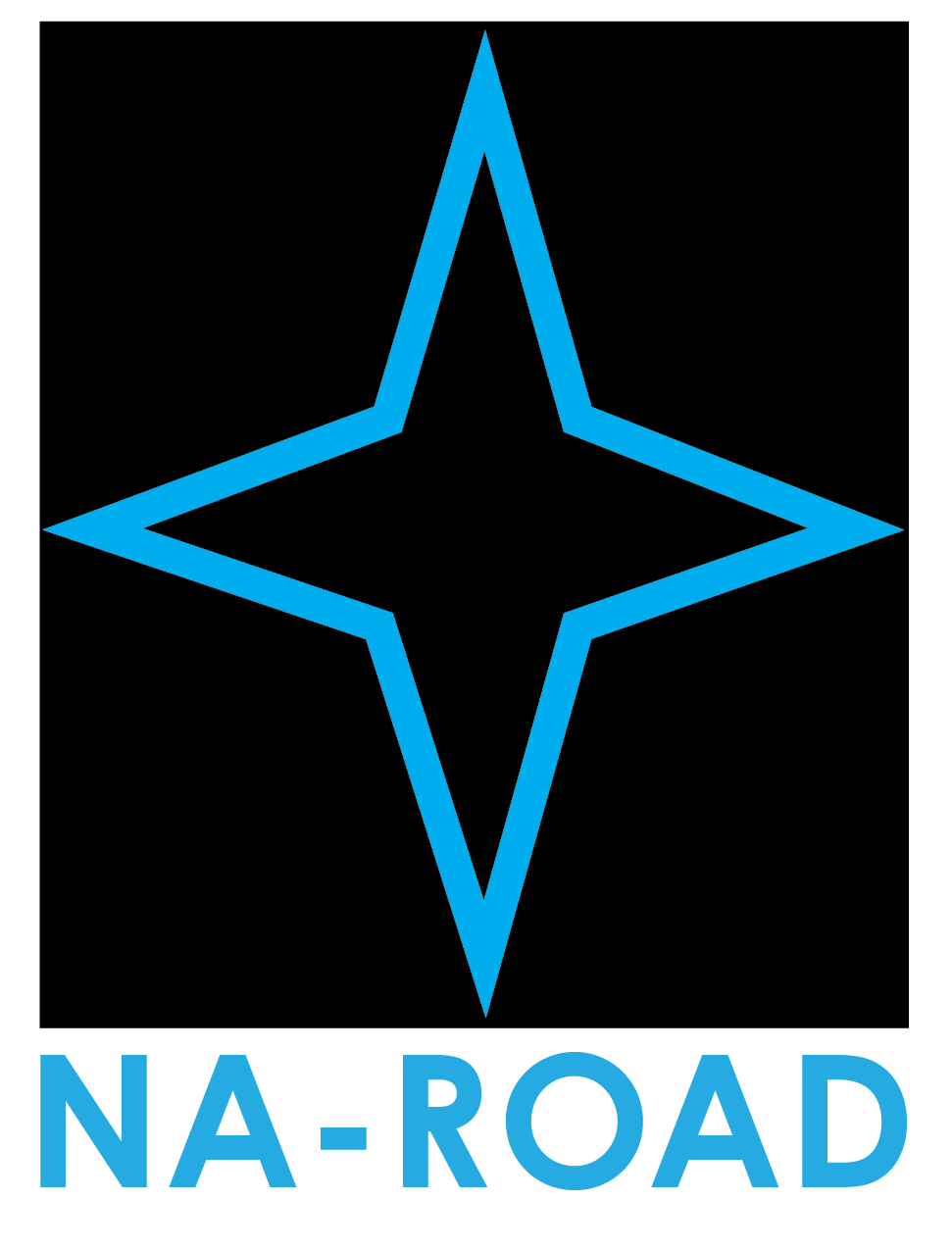The North American Regional Office of Astronomy for Development is proud to present the Women and Girls in Astronomy Program
The Women and Girls in Astronomy Program (WGAP) inspires and supports women, girls, and underrepresented genders in the field of astronomy. The program, implemented by the NA-ROAD, targets aspiring astronomers and current professionals alike to establish a network to uplift, educate, connect with, and promote astronomy for development in women and girls.
WGAP held its second call for projects in March 2024. The ten astronomy for development projects selected, listed below, will take place throughout North America. These projects are aimed at addressing and challenging the underrepresentation of women and girls in astronomy from a variety of perspectives. With the $2000 USD mini-grants awarded by the NA-ROAD, and sponsored by the Heising Simons Foundation, project leads will tackle diverse astronomy for development challenges in their communities.
WGAP 2024 Mentors
New for 2024, the WGAP projects will be supported by a mentoring program. Each project will have a mentor who will help them to reach their full potential. Based on their own experiences leading their 2023 WGAP, mentors will have meetings with their mentees to identify areas of support and guidance for the development of their initiatives. See the list of 2024 mentors (below).
In 2023 WGAP held a Call for Projects and ten unique astronomy for development projects took place throughout North America and were completed in December.
Links
We are thankful to the Heising-Simons Foundation for supporting the NA-ROAD Women and Girls in Astronomy Program.
Questions? Email wgap@aui.edu
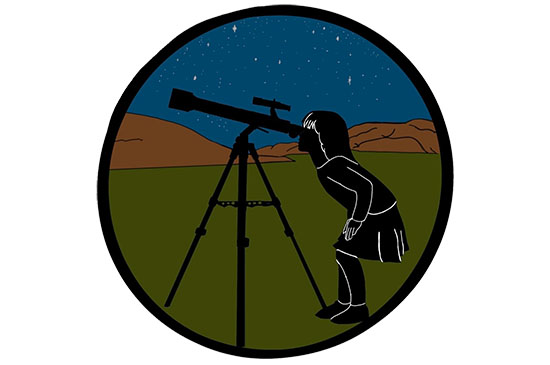
Bringing Astronomy Closer to Indigenous Women in Rural Communities in Mexico
Astronomy, and science in general, are often considered a luxury or even non-existent in marginalized communities. This project seeks that indigenous women from rural communities in Mexico have a first approach to astronomy, learn about its importance in daily life, and inform about how to get involved in STEM for the benefit of their communities. In a first interaction, we will take a group of women from these communities to an interactive science museum. Subsequently, we will organize science experiments, observations with telescopes, and informative talks for these women and their families.
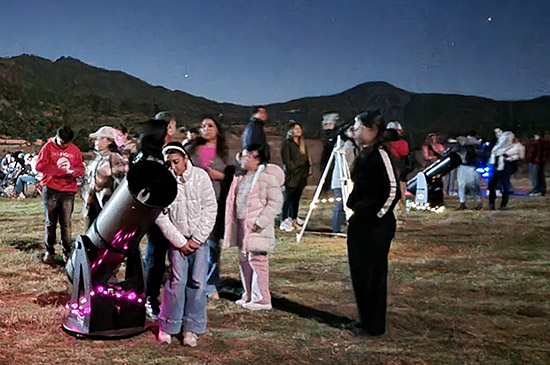
Campos de Estrellas
The “Campos de Estrellas” (Star Fields) project aims to empower young women in Tequila, Jalisco, by developing skills in astrotourism. A collaboration between ProSociedad and Tribu Cultura Astronómica, the project targets 10 women aged 18-29 facing economic inequality and limited educational opportunities. Through a holistic educational program, participants will receive training in digital and financial literacy, entrepreneurship, basic astronomy, and astrotourism experience design. The project includes a Stargazing event to connect participants with local tourism companies. This initiative will equip young women in Tequila with the skills needed for sustainable employment in the tourism sector, challenging gender stereotypes and fostering social and economic inclusion.
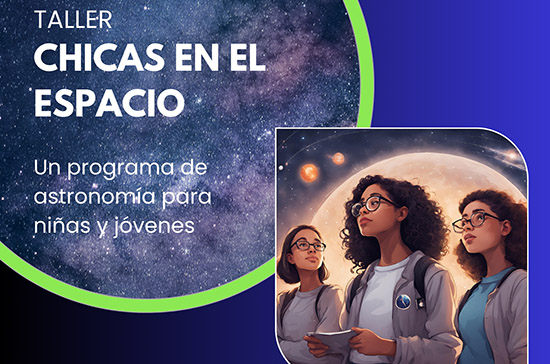
Chicas en el espacio
This exciting astronomy workshop will provide girls between 15 and 17 years old with inspiring and growing experiences. It was created due to the need for inclusive programs for selected young people in aerospace science in Puerto Rico. They will receive lectures from a team of professionals. They will dynamically acquire knowledge and skills to create in detail their own Girls in Space mission. Girls with low or no vision or hearing, reduced manual dexterity and/or dependent on assistive devices may participate. The closing of the workshop will be an observation with telescopes of the Association for Observation, Astronomical Dissemination and Space Sciences (AODACE).
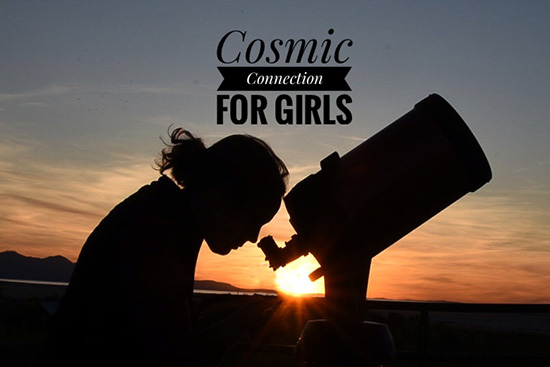
Cosmic Connection for Girls
Cosmic Connection for Girls, is an after school workshop. In conjunction with Clark Planetarium and women mentors we aim to connect girls living in rural communities to astronomy. Our workshop focuses on training girls on how to use telescopes and utilize astronomy resources such as Stellarium and Clear Sky apps. Additionally, the workshop will provide community leaders and educators in rural Utah with lesson plans and activities to enable them to support their girls in schools and other community facilities. We will leave telescopes for rural students to use in their school and at their local library.
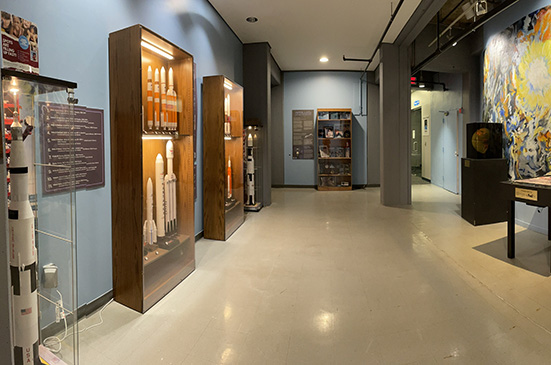
Discovery Science Center and Planetarium
You can’t be what you can’t see—pathways only exist if you can imagine yourself following them. We are expanding our Hall of Space, which displays rockets throughout history and from across the world, to include profiles of If/Then Gender Equity Ambassadors alongside rocket models. By displaying Ambassador posters that highlight women in astronomy, engineering, and physics, we can showcase role models in fields related to space exploration to provide visible pathways to our audience. Ambassadors will be chosen who represent intersectional identities (urban, low socioeconomic status, BIPOC women, non-English speakers, persons with disabilities) in common with Bridgeport, CT youth.

Ellas y las estrellas
Ellas y las Estrellas is an educational initiative designed to highlight and promote the contributions of women in Astronomy, with a focus on Hispanic women. This second in-person edition aims to make astronomy more accessible to residents near the southern border of Texas, particularly those facing economic or language barriers that limit their access to cultural or academic opportunities. This bilingual project strives to positively impact people’s lives by presenting the achievements and experiences of female Hispanic astronomers in the area, involving attendees with enjoyable experiments, and ultimately inspiring younger generations to engage in STEM activities.
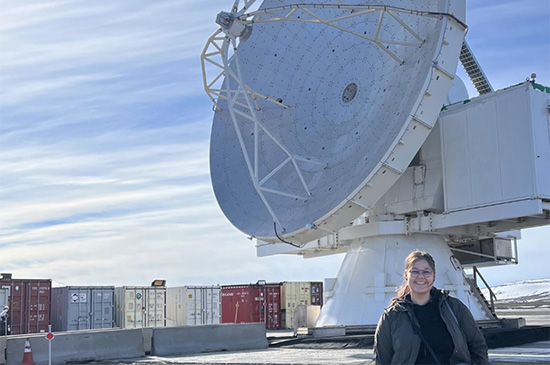
High5Girls
High5Girls is a camp for girls 13-17 years old with our role model Ivalu Barlach Christensen, who is doing her PhD in Germany. She is the first astrophysicist in Greenland and our vision is to inspire girls in Greenland to study astrophysics. We will invite 20 girls so that they can get close to our role model that grew up in Greenland to show that “if she can, I can also”. The camp will start with an introduction about becoming an astronomer with an overview of astronomy and astrophysics, the different fields of possible research. Three short projects that the girls will work on individually to get hands-on experience include utilizing the midnight sun, counting sunspots, identifying the members of the Pleiades cluster and the lifecycle of stars.
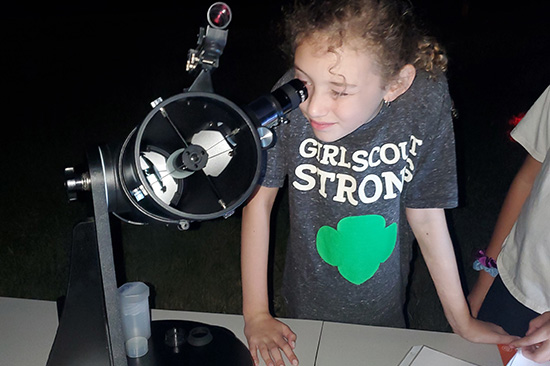
Inspiring Girls Scouts with Role Models in Astronomy
This program introduces Girl Scouts to diverse female astronomer role models via virtual and in-person experiences. The in-person component brings monthly telescope observing and astrophotography opportunities to Girl Scouts throughout Miami-Dade County and the Florida Keys. At virtual meetings, Girl Scouts nationwide will meet and interact with guest astronomers as they learn astronomical concepts. As the girls build their capacity to locate and photograph night sky objects with telescopes and/or build their astronomy content knowledge, they will simultaneously connect with inspiring role model guest astronomers from traditionally underrepresented populations in astronomy.
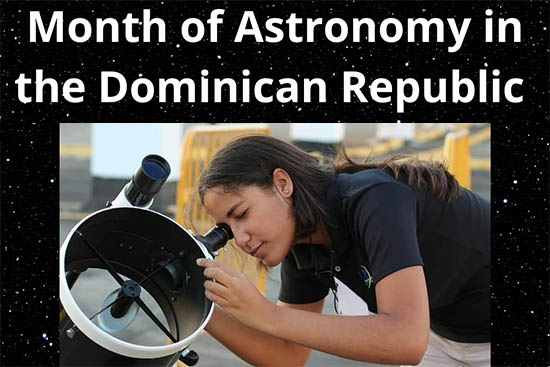
Month of Astronomy in the Dominican Republic
Building upon the success of last year’s “Month of Astronomy in the Dominican Republic,” our project aims to deepen participants’ understanding of astronomy and provide practical skills through a specialized workshop on handling astronomical data. We also plan to showcase diverse career paths through short talks with astronomers in various fields (e.g., policymaking). Moreover, we plan to allocate part of the grant to offer remote internships lasting three months to two physics students, enabling them to gain valuable research experience in astronomy. The workshops and internships aspire to cultivate a sustainable legacy of capable individuals who will drive the advancement of astronomy in the Dominican Republic.
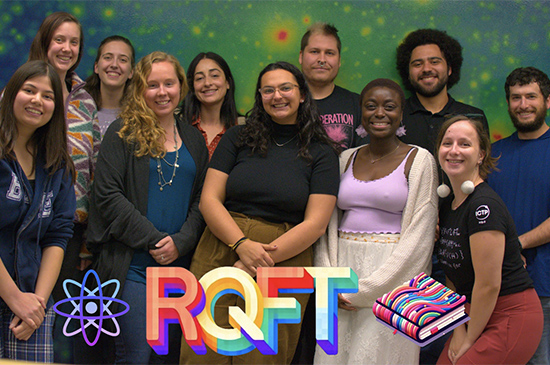
Race & Queer Feminist Theory (RQFT)
The 2024 Race & Queer Feminist Theory (RQFT) Expansion project aims to enhance the existing graduate student UCI RQFT reading group, which explores the intersection of physics, history, and sociology (e.g. Indigenous science practices and feminist frameworks in physics). We will acquire high-quality reading materials, hosting external speakers, creating a website for our conversations to have a broader reach, and developing allyship workshops. The project targets underrepresented groups in physics as well as their allies, thereby seeking to build an inclusive community and set a precedent for what a productive and progressive physics department can look like in the future.
2024 WGAP Mentors
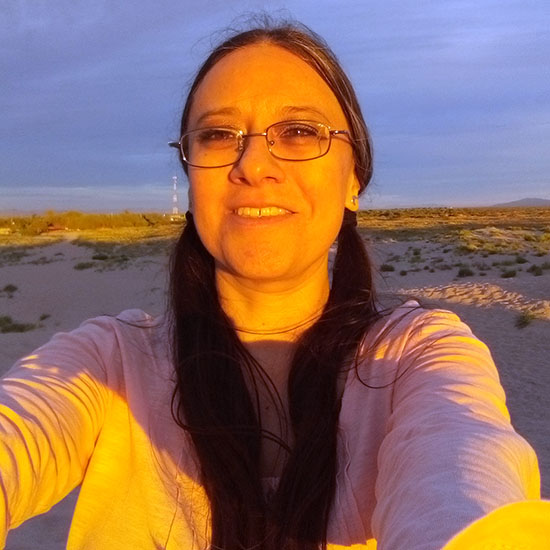
Anaely Pacheco Blanco
Anaely Pacheco Blanco is a science communicator, especially of astrophysics. She holds a bachelor degree in Physics from the Benemérita Universidad Autónoma de Puebla (BUAP) and a science master degree specialized in astrophysics from the Instituto Nacional de Astrofísica, Óptica y Electrónica (INAOE). She is interested in promoting equity, diversity and inclusion in the STEM areas and the protection of the dark sky as a common heritage. She is part of the international network “Astronomía Inclusiva” and the darksky advocates of Dark Sky International. She is coauthor of a story (in a bilingual publication in Spanish and Tseltal, an indigenous language spoken in Chiapas, Mexico) that uses appropriate cultural analogies to convey the science behind the origin of the Universe. She was part of the first cohort of the WGAP with the first stage of the project enSEÑAme astronomía, a series of astronomical workshops for the deaf community.
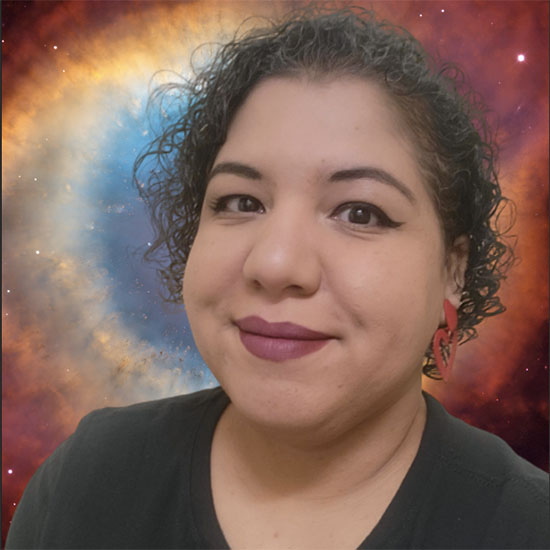
Betsy Hernandez
Betsy Hernandez is a first-generation Dominican American. She obtained her bachelor’s degree in physics and mathematics from Hunter College. She is the STEM Educator at The Brotherhood Sister Sol’s after-school program, where she teaches coding, and uses Lego sets to teach robotics and engineering to kids ages 8 to 18. Betsy also enjoys participating in Astronomy outreach, where she shares her passion for the universe with audiences of various ages and backgrounds.

Shaniya Jarrett
Shaniya Jarrett grew up in Colorado where she received her BA in Astrophysics at the University of Colorado, Boulder. After graduating, she spent two years in the aerospace industry as a Satellite Test Engineer with General Atomics. She is currently finishing her Master’s in Physics within the Fisk-Vanderbilt Master’s-to-PhD Bridge program studying binary black hole mergers and large-scale structure. In fall of 2024, she will join the University of Maryland’s PhD program in Astronomy and Astrophysics. Her research interests are in cosmology, gravitational waves, and machine learning. Outside of academia, she enjoys playing volleyball, piano, video games, and taking care of her pet rats.
